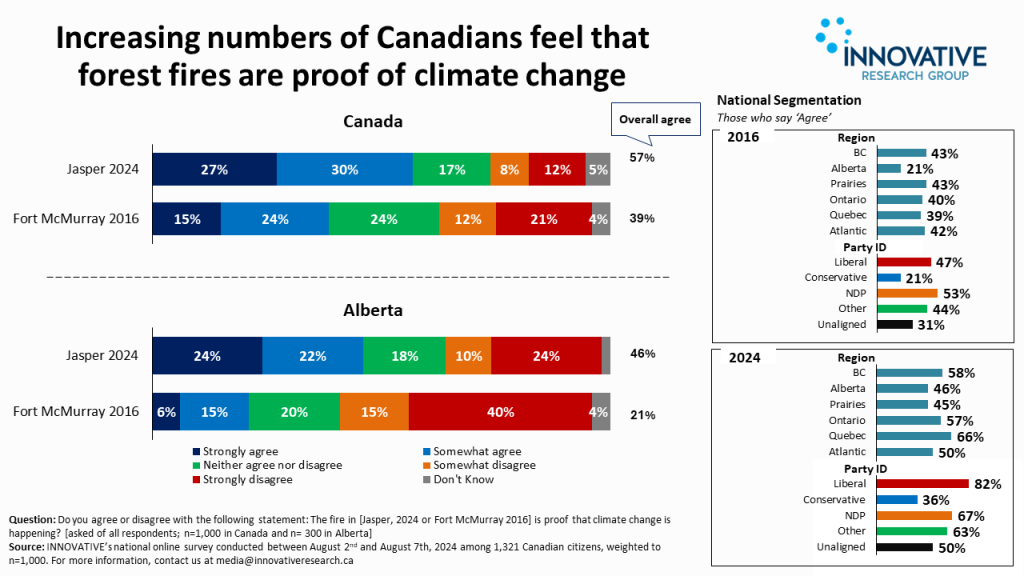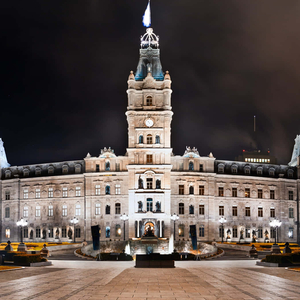

A comparison of Canadians’ reactions to the Jasper forest fire this summer with their response to the Fort McMurray fires in 2016 suggests that Canadians may now be more inclined to link unusual weather events to climate change. From August 2nd, 2024 to August 7th, Innovative Research Group (INNOVATIVE) conducted a survey of 1,321 Canadians, including an oversample in Alberta. The survey tracked Canadian attitudes towards climate change and then asked several questions about the Jasper fire that repeated questions first asked about the Fort McMurray fire in 2016.
General Trends
The vast majority (85%) of Canadians do believe in the occurrence of climate change. Over three-quarters (78%) say it is probably being driven by human activity. A large majority of 62% of Canadians report personally experiencing unusual weather conditions that they believe may be evidence of climate change. This number has remained fairly steady since 2018. Despite this, concern about climate change has steadily declined since August 2021, dropping to 67% in this survey, the lowest since tracking began in 2008.
While support has also dropped for the national minimum price on carbon, it is up in August compared to April. When asked whether they support or oppose this policy, a plurality of Canadians (38%) support it, 31% oppose it, and 19% were undecided. The highest total support coming from liberal respondents at 61%. Support for this policy tends to increase with greater familiarity and concern among respondents.
The carbon price has become central to political debate. To better understand the politics around the carbon tax, we asked Canadians to choose between two narratives:
- “Putting a price on pollution is one of the best ways to lower carbon consumption and fight climate change in this country”
- “The carbon pricing policy is just another tax grab that hinders the economic development of the country and does nothing for the environment”
Nearly half (48%) of respondents view the carbon tax as a cash grab that hinders economic development, while only 36% believe it is one of the most effective ways to reduce carbon consumption. The remaining 16% are undecided. Those following the issue most closely echo the general trend with 50% viewing the tax as a cash grab, compared to the 40% who consider it one of the best ways to reduce carbon consumption.
Canadian Opinions on Forest Fires in Comparison
As previously mentioned, we revisited the same series of questions used during our coverage of the 2016 Fort McMurray forest fires following the recent forest fires in Jasper. This approach aimed to compare and contrast public reactions, offering insights into how closely Canadians followed each event, how they judged the response, and whether they attributed the fires to climate change. While a large majority of Canadians followed both events, 77% followed the Fort McMurray coverage closely compared to 61% for Jasper. Despite the lower viewership of media coverage surrounding Jasper, more Canadians (57%) viewed the fire as evidence of climate change, an 18-point increase from Fort McMurray (39%). Notably, the share of conservatives who believe this also grew, rising by 15 points from 21% for Fort McMurray to 36% for Jasper. Net approval of Prime Minister Justin Trudeau’s response to the Jasper fire is 34 points lower (-2%) than it was for Fort McMurray (+32%).




































